
Keywords: sex-ratio distorter
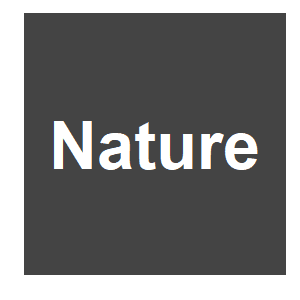
|
Male-killing virus leads to more female mothsAnonymous, Nature, 2023.
Keisuke Nagamine at Minami Kyushu University in Miyazaki, Japan, and his colleagues have identified another virus that kills male embryos of the tobacco caterpillar, Spodoptera litura. Female moths infected with the virus produced an equal number of male and female embryos, but ... Keywords: Anopheles, coluzzii, gene drive synthetic, sex-ratio distorter, X-shredder |
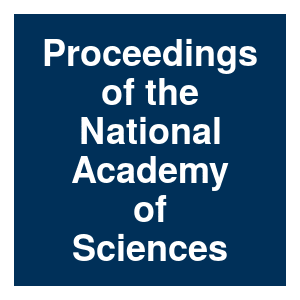
|
Male-killing virus in a noctuid moth Spodoptera lituraK. Nagamine, Y. Kanno, K. Sahara, T. Fujimoto, A. Yoshido, Y. Ishikawa, M. Terao, D. Kageyama and Y. Shintani, Proceedings of the National Academy of Sciences, 120:e2312124120. 2023.
A female-biased sex ratio is considered advantageous for the cytoplasmic elements that inhabit sexually reproducing organisms. There are numerous examples of bacterial symbionts in the arthropod cytoplasm that bias the host sex ratio toward females through various means, ... Keywords: Anopheles, coluzzii, gene drive synthetic, sex-ratio distorter, X-shredder |
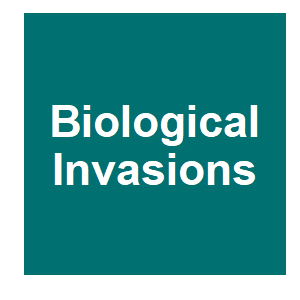
|
Assessing the suitability of YY males and ZZ females as an invasive species population control method across life historiesR. A. Erickson, H. M. Thompson, S. A. Kageyama, G. M. Andriacchi, A. R. Cupp, R. Patiño and J. J. Amberg, Biological Invasions, 25:3737-3751. 2023.
Natural resource managers use tools to control invasive species. In theory, stocking YY males or ZZ females would allow managers to skew sex ratios until populations collapse. In combination with other suppression methods, such as removal, this approach could be incorporated into ... Keywords: Anopheles, coluzzii, gene drive synthetic, sex-ratio distorter, X-shredder |
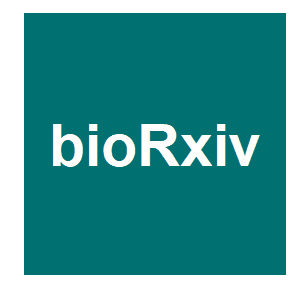
|
Population suppression by release of insects carrying a dominant sterile homing gene drive targeting doublesex in DrosophilaC. Weizhe, G. Jialiang, L. Yiran and C. Jackson, bioRxiv, 2023.07.17.549342. 2023.
Gene drive alleles, which bias their own inheritance and increase in frequency, show great promise for blocking disease transmission or directly suppressing pest populations. The most common engineered drive system is the CRISPR homing drive, which converts wild-type alleles to ... Keywords: Anopheles, coluzzii, gene drive synthetic, sex-ratio distorter, X-shredder |
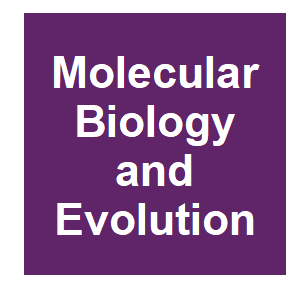
|
The evolutionary history of Drosophila simulans Y chromosomes reveals molecular signatures of resistance to sex ratio meiotic driveC. Courret, D. Ogereau, C. Gilbert, A. M. Larracuente and C. Montchamp-Moreau, Mol Biol Evol, 2023.
The recent evolutionary history of the Y chromosome in Drosophila simulans, a worldwide species of Afrotropical origin, is closely linked to that of X-linked meiotic drivers (Paris system). The spread of the Paris drivers in natural populations has elicited the selection of drive ... Keywords: Anopheles, coluzzii, gene drive synthetic, sex-ratio distorter, X-shredder |

|
Impacts of sex ratio meiotic drive on genome structure and function in a stalk-eyed flyJ. A. Reinhardt, R. H. Baker, A. V. Zimin, C. Ladias, K. A. Paczolt, J. H. Werren, C. Y. Hayashi and G. S. Wilkinson, Genome Biology Evolution, 2023.
Stalk-eyed flies in the genus Teleopsis carry selfish genetic elements that induce sex ratio meiotic drive (SR) and impact the fitness of male and female carriers. Here, we assemble and describe a chromosome-level genome assembly of the stalk-eyed fly, Teleopsis dalmanni, to ... Keywords: Anopheles, coluzzii, gene drive synthetic, sex-ratio distorter, X-shredder |

|
A male-killing gene encoded by a symbiotic virus of DrosophilaD. Kageyama, T. Harumoto, K. Nagamine, A. Fujiwara, T. N. Sugimoto, A. Jouraku, M. Tamura, T. K. Katoh and M. Watada, Nature Communications, 14:1357. 2023.
In most eukaryotes, biparentally inherited nuclear genomes and maternally inherited cytoplasmic genomes have different evolutionary interests. Strongly female-biased sex ratios that are repeatedly observed in various arthropods often result from the male-specific lethality ... Keywords: Anopheles, coluzzii, gene drive synthetic, sex-ratio distorter, X-shredder |

|
Heterogeneous distribution of sex ratio distorters in natural populations of the isopod Armadillidium vulgareS. Durand, B. Lheraud, I. Giraud, N. Bech, F. Grandjean, T. Rigaud, J. Peccoud and R. Cordaux, Biology Letters, 19:20220457. 2023.
In the isopod Armadillidium vulgare, many females produce progenies with female-biased sex ratios, owing to two feminizing sex ratio distorters (SRD): Wolbachia endosymbionts and the f element. We investigated the distribution and population dynamics of these SRD and ... Keywords: Anopheles, coluzzii, gene drive synthetic, sex-ratio distorter, X-shredder |

|
Meiotic drive adaptive testes enlargement during early development in the stalk-eyed flyS. L. Bradshaw, L. Meade, J. Tarlton-Weatherall and A. Pomiankowski, Biology Letters, 18:20220352. 2022.
The sex ratio (SR) X-linked meiotic drive system in stalk-eyed flies destroys Y-bearing sperm. Unlike other SR systems, drive males do not suffer fertility loss. They have greatly enlarged testes which compensate for gamete killing. We predicted that enlarged testes arise from ... Keywords: Anopheles, coluzzii, gene drive synthetic, sex-ratio distorter, X-shredder |
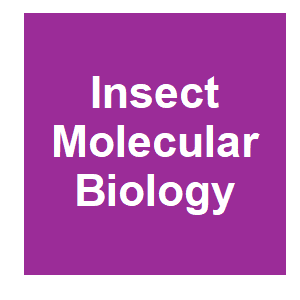
|
Introgression of a synthetic sex ratio distortion transgene into different genetic backgrounds of Anopheles coluzziiP. Pollegioni, T. Persampieri, R. L. Minuz, A. Bucci, A. Trusso, S. Di Martino, C. Leo, M. Bruttini, M. Ciolfi, A. M. Waldvogel, F. Tripet, A. Simoni, A. Crisanti and R. Müller, Insect Molecular Biology, 2022.
The development of genetically modified mosquitoes (GMM) and their subsequent field release offers innovative approaches for vector control of malaria. A non-gene drive self-limiting male-bias Ag(PMB)1 strain has been developed in a 47-year-old laboratory G3 strain of Anopheles ... Keywords: Anopheles, coluzzii, gene drive synthetic, sex-ratio distorter, X-shredder |
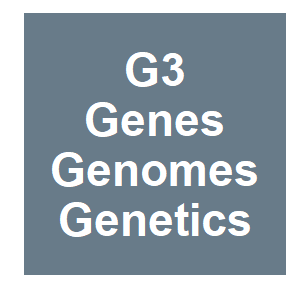
|
Mitotic exchange in female germline stem cells is the major source of Sex Ratio chromosome recombination in Drosophila pseudoobscuraS. Koury, G3 Genes|Genomes|Genetics, 2022.
Sex Ratio chromosomes in Drosophila pseudoobscura are selfish X chromosome variants associated with three non-overlapping inversions. In the male germline, Sex Ratio chromosomes distort segregation of X and Y chromosomes (99:1), thereby skewing progeny sex ratio. In the female ... Keywords: Anopheles, coluzzii, gene drive synthetic, sex-ratio distorter, X-shredder |

|
Distribution of sex ratio distorters in natural populations of the isopod Armadillidium vulgare, 2022.Keywords: Anopheles, coluzzii, gene drive synthetic, sex-ratio distorter, X-shredder |

|
Hoisted with his own petard: How sex-ratio meiotic drive in Drosophila affinis creates resistance alleles that limit its spreadW. J. Ma, E. M. Knoles, K. B. Patch, M. M. Shoaib and R. L. Unckless, J Evol Biol, 2022.
Meiotic drivers are selfish genetic elements that tinker with gametogenesis to bias their own transmission into the next generation of offspring. Such tinkering can have significant consequences on gametogenesis and end up hampering the spread of the driver. In Drosophila ... Keywords: Anopheles, coluzzii, gene drive synthetic, sex-ratio distorter, X-shredder |

|
Gene drive designs for efficient and localisable population suppression using Y-linked editorsR. Geci, K. Willis and A. Burt, bioRxiv, 2022.06.29.498122. 2022.
The sterile insect technique (SIT) has been successful in controlling some pest species but is not practicable for many others due to the large numbers of individuals that need to be reared and released. Previous computer modelling has demonstrated that the release of males ... Keywords: Anopheles, coluzzii, gene drive synthetic, sex-ratio distorter, X-shredder |

|
Hoisted with his own petard: how sex-ratio meiotic drive in <em>Drosophila affinis</em> creates resistance alleles that limit its spreadW.-J. Ma, E. M. Knoles, K. B. Patch, M. M. Shoaib and R. L. Unckless, bioRxiv, 2022.02.14.480432. 2022.
Meiotic drivers are selfish genetic elements that tinker with gametogenesis to bias their own transmission into the next generation of offspring. Such tinkering can have significant consequences on gametogenesis and end up hampering the spread of the driver. In Drosophila ... Keywords: Anopheles, coluzzii, gene drive synthetic, sex-ratio distorter, X-shredder |
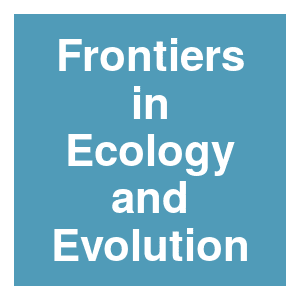
|
Natural and Engineered Sex Ratio Distortion in InsectsA. Compton and Z. Tu, Frontiers in Ecology and Evolution, 10. 2022.
Insects have evolved highly diverse genetic sex-determination mechanisms and a relatively balanced male to female sex ratio is generally expected. However, selection may shift the optimal sex ratio while meiotic drive and endosymbiont manipulation can result in sex ratio ... Keywords: Anopheles, coluzzii, gene drive synthetic, sex-ratio distorter, X-shredder |

|
Male-killing-associated bacteriophage WO identified from comparisons of Wolbachia endosymbionts of Homona magnanimaH. Arai, H. Anbutsu, Y. Nishikawa, M. Kogawa, K. Ishii, M. Hosokawa, S.-R. Lin, M. Ueda, M. Nakai, Y. Kunimi, T. Harumoto, D. Kageyama, H. Takeyama and M. N. Inoue, bioRxiv, 2022.
The origin and mechanism of male-killing, an advantageous strategy employed by maternally transmitted symbionts such as Wolbachia, remain unclear. We compared genomes of four Wolbachia strains derived from Homona magnanima, a male-killing strain wHm-t (1.5 Mb), and three ... Keywords: Anopheles, coluzzii, gene drive synthetic, sex-ratio distorter, X-shredder |

|
Mitotic exchange in female germline stem cells is the major source of Sex Ratio chromosome recombination in Drosophila pseudoobscuraS. Koury, bioRxiv, 2022.06.07.495109. 2022.
Sex Ratio chromosomes in Drosophila pseudoobscura are selfish X chromosome variants associated with three non-overlapping inversions. In the male germline, Sex Ratio chromosomes distort segregation of X and Y chromosomes (99:1), thereby skewing progeny sex ratio. In the female ... Keywords: Anopheles, coluzzii, gene drive synthetic, sex-ratio distorter, X-shredder |

|
The fate of a suppressed X-linked meiotic driver: experimental evolution in Drosophila simulansH. Bastide, D. Ogereau, C. Montchamp-Moreau and P. R. Gérard, Chromosome Research, 2022.
Sex-ratio (SR) meiotic drivers are X-linked selfish genetic elements that promote their own transmission by preventing the production of Y-bearing sperm, which usually lowers male fertility. The spread of SR drivers in populations is expected to trigger the evolution of unlinked ... Keywords: Anopheles, coluzzii, gene drive synthetic, sex-ratio distorter, X-shredder |
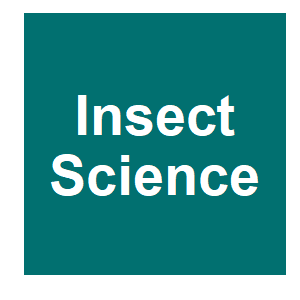
|
Characterization of the first Wolbachia from the genus Scaptodrosophila, a male-killer from the rainforest species S. claytoniK. M. Richardson, M. Schiffer, P. A. Ross, J. A. Thia and A. A. Hoffmann, Insect Science, 2022.
Abstract The Scaptodrosophila genus represents a large group of drosophilids with a worldwide distribution and a predominance of species in Australia, but there is little information on the presence and impacts of Wolbachia endosymbionts in this group. Here we describe the first ... Keywords: Anopheles, coluzzii, gene drive synthetic, sex-ratio distorter, X-shredder |

|
Exploiting a Y chromosome-linked Cas9 for sex selection and gene driveS. Gamez, D. Chaverra-Rodriguez, A. Buchman, N. P. Kandul, S. C. Mendez-Sanchez, J. B. Bennett, C. H. Sánchez, T. Yang, I. Antoshechkin, J. E. Duque, P. A. Papathanos, J. M. Marshall and O. S. Akbari, Nature Communications, 7202. 2021.
CRISPR-based genetic engineering tools aimed to bias sex ratios, or drive effector genes into animal populations, often integrate the transgenes into autosomal chromosomes. However, in species with heterogametic sex chromsomes (e.g. XY, ZW), sex linkage of endonucleases could be ... Keywords: Anopheles, coluzzii, gene drive synthetic, sex-ratio distorter, X-shredder |

|
Gene editing used to create all-male or all-female litters of miceJ. Goodyer, Science Focus, 2021.
As males are unable to produce milk or lay eggs, the ability to breed cows and hens that produce all-female litters is likely to be high on most poultry and dairy farmers’ wish lists. Now, scientists at the Francis Crick Institute and the University of Kent have come a step ... Keywords: Anopheles, coluzzii, gene drive synthetic, sex-ratio distorter, X-shredder |

|
Gene editing used to create all-male or all-female mice littersA. Reis, European Scientist, 2021.
Researchers from the Francis Crick Institute and the University of Kent used gene-editing technologies to create male-only and female-only mice litters, according to a study published in Nature Communications (1). The authors also suggested ways in which this method could be used ... Keywords: Anopheles, coluzzii, gene drive synthetic, sex-ratio distorter, X-shredder |

|
Gene-editing used to create single sex mice littersThe Francis Crick Institute, Phys Org, 2021.
Scientists at the Francis Crick Institute, in collaboration with University of Kent, have used gene editing technology to create female-only and male-only mice litters with 100% efficiency. This proof of principle study, published in Nature Communications today, demonstrates how ... Keywords: Anopheles, coluzzii, gene drive synthetic, sex-ratio distorter, X-shredder |

|
Single-sex mice litters were created with 100% efficiency using gene editing.R. Silman, Brinkwire, 2021.
The Francis Crick Institute, in partnership with the University of Kent, has employed gene editing technology to construct 100% efficient female-only and male-only mouse litters. This proof-of-concept study, which was published today (Friday, December 3rd, 2021) in Nature ... Keywords: Anopheles, coluzzii, gene drive synthetic, sex-ratio distorter, X-shredder |

|
Lab animals: Gene-editing technology is used to create female-only and male-only mice litterstodayuknews, Today UK News, 2021.
Single-sex litters of mice — comprising only either female or male pups — have been produced by means of so-called CRISPR-Cas9 gene editing technology. The technique, developed by experts at the Francis Crick Institute and the University of Kent, works by inactivating embryos ... Keywords: Anopheles, coluzzii, gene drive synthetic, sex-ratio distorter, X-shredder |
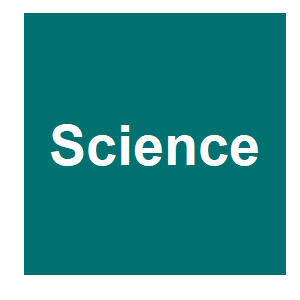
|
Gene editing produces all-male or all-female litters of miceE. Pennisi, Science, 2021.
In some farmers’ ideal world, cows would birth only females, sows would bear no boars, and chicks would all grow up to be hens. Such sex ratios would stop them from killing millions of male animals, which don’t produce eggs or milk. Now, scientists are a step closer to this ... Keywords: Anopheles, coluzzii, gene drive synthetic, sex-ratio distorter, X-shredder |

|
CRISPR-Cas9 effectors facilitate generation of single-sex litters and sex-specific phenotypesC. Douglas, V. Maciulyte, J. Zohren, D. M. Snell, S. K. Mahadevaiah, O. A. Ojarikre, P. J. I. Ellis and J. M. A. Turner, Nature Communications, 12:6926. 2021.
Animals are essential genetic tools in scientific research and global resources in agriculture. In both arenas, a single sex is often required in surplus. The ethical and financial burden of producing and culling animals of the undesired sex is considerable. Using the mouse as a ... Keywords: Anopheles, coluzzii, gene drive synthetic, sex-ratio distorter, X-shredder |
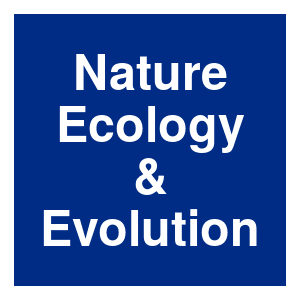
|
Satellite DNA-mediated diversification of a sex-ratio meiotic drive gene family in DrosophilaC. A. Muirhead and D. C. Presgraves, Nature Ecology & Evolution, 2021.
Sex chromosomes are susceptible to the evolution of selfish meiotic drive elements that bias transmission and distort progeny sex ratios. Conflict between such sex-ratio drivers and the rest of the genome can trigger evolutionary arms races resulting in genetically suppressed ... Keywords: Anopheles, coluzzii, gene drive synthetic, sex-ratio distorter, X-shredder |

|
Polyandry blocks gene drive in a wild house mouse populationA. Manser, B. Konig and A. K. Lindholm, Nature Communications, 11:8. 2020.
Here, we study the impact of polyandry on a well-known gene drive, called t haplotype, in an intensively monitored population of wild house mice. First, we show that house mice are highly polyandrous: 47% of 682 litters were sired by more than one male. Second, we find that ... Keywords: Anopheles, coluzzii, gene drive synthetic, sex-ratio distorter, X-shredder |

|
Selfish genetic elements and male fertilityR. L. Verspoor, T. A. R. Price and N. Wedell, Philosophical Transactions of the Royal Society B-Biological Sciences, 375:7. 2020.
Selfish genetic elements (SGEs) are diverse and near ubiquitous in Eukaryotes and can be potent drivers of evolution. Here, we discuss SGEs that specifically act on sperm to gain a transmission advantage to the next generation. The diverse SGEs that affect sperm often impose ... Keywords: Anopheles, coluzzii, gene drive synthetic, sex-ratio distorter, X-shredder |

|
Resistance to natural and synthetic gene drive systemsT. A. R. Price, N. Windbichler, R. L. Unckless, A. Sutter, J.-N. Runge, P. A. Ross, A. Pomiankowski, N. L. Nuckolls, C. Montchamp-Moreau, N. Mideo, O. Y. Martin, A. Manser, M. Legros, A. M. Larracuente, L. Holman, J. Godwin, N. Gemmell, C. Courret, A. Buc, Journal of Evolutionary Biology, 2020.
This review summarizes our current knowledge of drive resistance in both natural and synthetic gene drives. We explore how insights from naturally occurring and synthetic drive systems can be integrated to improve the design of gene drives, better predict the outcome of releases ... Keywords: Anopheles, coluzzii, gene drive synthetic, sex-ratio distorter, X-shredder |

|
Towards Responsive Eco-technology: The Development of a Male Sex-biased MouseW. Kamau, Massachusetts Institute of Technology, 2020.
CRISPR-Cas systems have catalyzed the emergence of several synthetic population management strategies, like gene drives, for controlling pests and disease vectors. As these technologies garner greater visibility in both general and regulatory audiences, questions have arisen ... Keywords: Anopheles, coluzzii, gene drive synthetic, sex-ratio distorter, X-shredder |

|
Meiotic drive changes sperm precedence patterns in house mice: potential for male alternative mating tactics?Sutter, AL, A. K., BMC Evolutionary Biology, 16:15. 2016.
Background: With female multiple mating (polyandry), male-male competition extends to after copulation (sperm competition). Males respond to this selective pressure through physiological, morphological and behavioural adaptations. Sperm competitiveness is commonly decreased in ... Keywords: Anopheles, coluzzii, gene drive synthetic, sex-ratio distorter, X-shredder |

Contact
David O’Brochta
Foundation for the
National Institutes of Health
geneconvenevi@fnih.org
RSS

